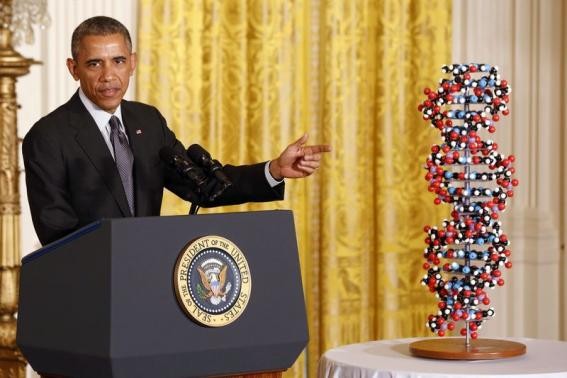The U.S. National Prayer Breakfast is occurring this week at the White House, and political exile the Dalai Lama received an invitation from President Obama last week.
This is by no means a first for the two prominent figures, as both have sat down together on three prior occasions. Unsurprisingly for many of those familiar with world politics, Beijing is not overjoyed by the news, and it is not because China's officials want a seat at the table, too.
For anyone who needs to catch up on the dynamics involved in this global relationship triangle, the Dalai Lama escaped from India after a 1959 uprising did not succeed. Just under a decade earlier, China's People's Liberation Army "peacefully liberated" the region.
Since his escape, the Tibetan spiritual leader has been labeled a "wolf in sheep's clothing" by China's government, who claims that he is harboring a violent plan to achieve independence in his native territory.
Beijing's allegation remains incongruent in the West, where the support of hip celebrities and a profitable spirituality market means that the Dalai Lama is perceived as a Ghandi-style world leader. The Dalai Lama denies that violence is part of his agenda, and even rejects the notion of independence--he states that he simply wants autonomy for Tibet.
If there was any doubt over the exact nature of the American president's relationship with the Dalai Lama, Patrick Ventrell, the White House's deputy spokesman, made the status clear on Saturday:
"[President Obama has] a great relationship with the Dalai Lama. . . . The President is a strong supporter of the Dalai Lama's teachings and preserving Tibet's unique religious, cultural and linguistic traditions."
While the China Daily publication has "no idea whether it was the U.S. president's idea to invite" the Dalai Lama, its Monday editorial is certain that "Obama is acquiescing to the Dalai Lama's attempt to split Tibet from China."
The publication adds that, since 1959, the Dalai Lama has never stopped conducting "subversive activities" to achieve his ultimate goal. According to the China Daily, the leader is responsible for causing "a lot of trouble to China" and has also "negatively affected the social and political stability in the Tibet autonomous region."
Based on the response to Premier Li Keqiang's 2015 Davos speech, and the enthusiasm that the key players in major industries have recently expressed about China's economy, it seems unusual for the leader of a world superpower to act in this way.
While the rest of the world appears to understand the value of its relations with China, Washington may be the only one left who needs to answer China's big question: "Are you with us, or not?"



























